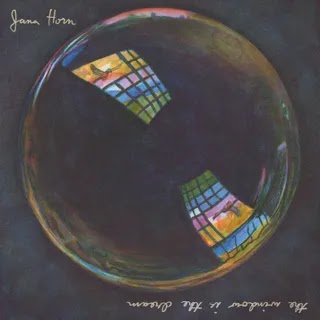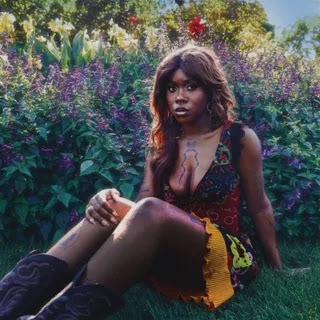With the boiled-down quality of a good short story collection, the debut album from the Texas songwriter is cryptic, bewildering, and daringly simple.
Jana Horn recorded a solo debut before Optimism that she scrapped because it sounded too good. “It didn’t reflect me very much,” she told The Guardian. The Texan post-grad fiction writer and teacher recruited some members of the band Knife on the Water and made another album, from scratch, that she liked better. The music was daringly simple this time, and in that space, something sprouted and proliferated: her writer’s mind, which snaked into the cracks left by the arrangements.
That album, now being given proper release by Philadelphia’s No Quarter, reveals its quizzical heart in its opening seconds. Horn plays the beginning of “Friends Again” on two acoustic guitar strings with two fingers. Absent a few chord changes, the song is intriguingly close to something you could write and play with no guitar knowledge whatsoever. A trumpet eventually chimes in with some whole notes, but otherwise, the action is confined to Horn’s words, which trace the circumference of a psychic wound over and over. “You didn’t just push me out, you dug me out, deep,” she sings airily, adding dripping-faucet repetitions of the word “deep,” as if each time might bring her closer to the injury’s root.
From there, the album blossoms into a muted country sway, the turnaround licks and shuffles and cymbal hits all played sotto voce. The dry peculiarity in Horn’s delivery recalls Phil Elverum, just as the chilly serenity of the music sometimes evokes Mount Eerie. Filigree—a soft Hammond organ, like a raised eyebrow, on the title track; an electric guitar glinting in the corners of “Time Machine”—warms the edges. If Elverum’s mood is solitary reverie, Horn’s is more tender and intimate: many lyrics read like eavesdropped conversations between partners.
In her unusually entertaining press bio (“a grad professor once told me that masturbation is writing, as long as you’re looking out a window”), Horn cites Raymond Carver, and her best songs have the bewildering, boiled-down quality of one of Carver’s miniatures. As in Carver’s stories, or Amy Hempel’s, you’re not always sure what the narrator is revealing, or to whom, and the story feels broken off from some larger, ongoing narrative. Take “changing lines,” which opens with one character confessing they woke up “down in my brain” to another. The second character delivers a curious rebuttal: “In certain ways we just won’t relate, and that’s where sympathy can be, and is, enough... down to the molecule, opposites exist, and to exist depend on their opposites (what God is not, he is).” Is that clear? No? The song ends there.
The album feels about five times larger with the inclusion of “Jordan,” its first single. Whereas the rest of the record sounds homey, “Jordan” surveys alien territory. The bass thrums simple eighth notes, accompanied by nothing except atmospheric swirls and Horn’s lyrics, which detail a dreamlike scenario full of the willfully Biblical symbols and cryptic exchanges that characterize Leonard Cohen songs. She sing-speaks calmly in flowing meter, and as the song swirls and darkens, nothing is clear except for its riveting portent. She’s mentioned it was the last song she wrote for the record, and it has the feel of a transmission from some other place—maybe where Jana Horn goes next.
















0 comments:
Post a Comment